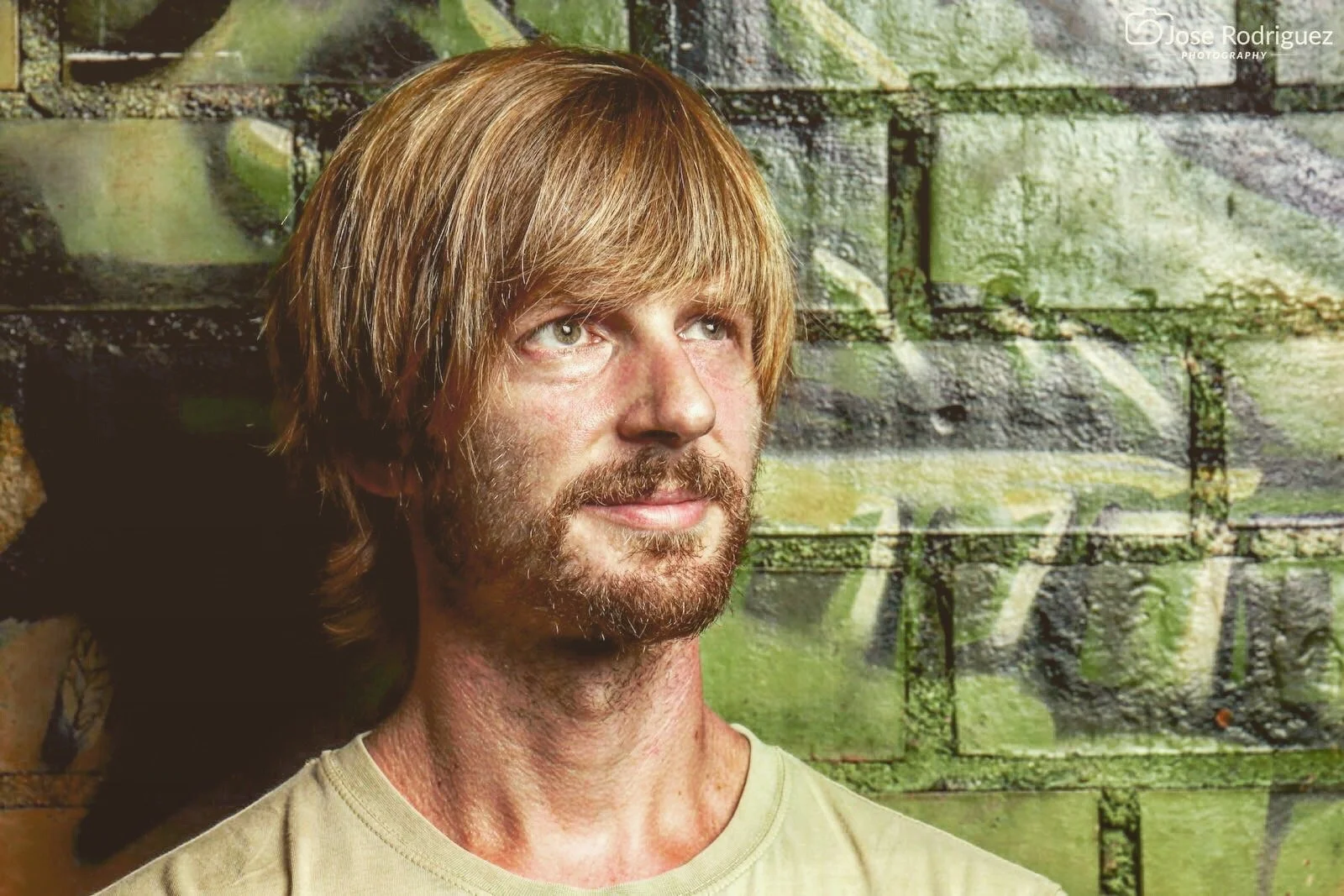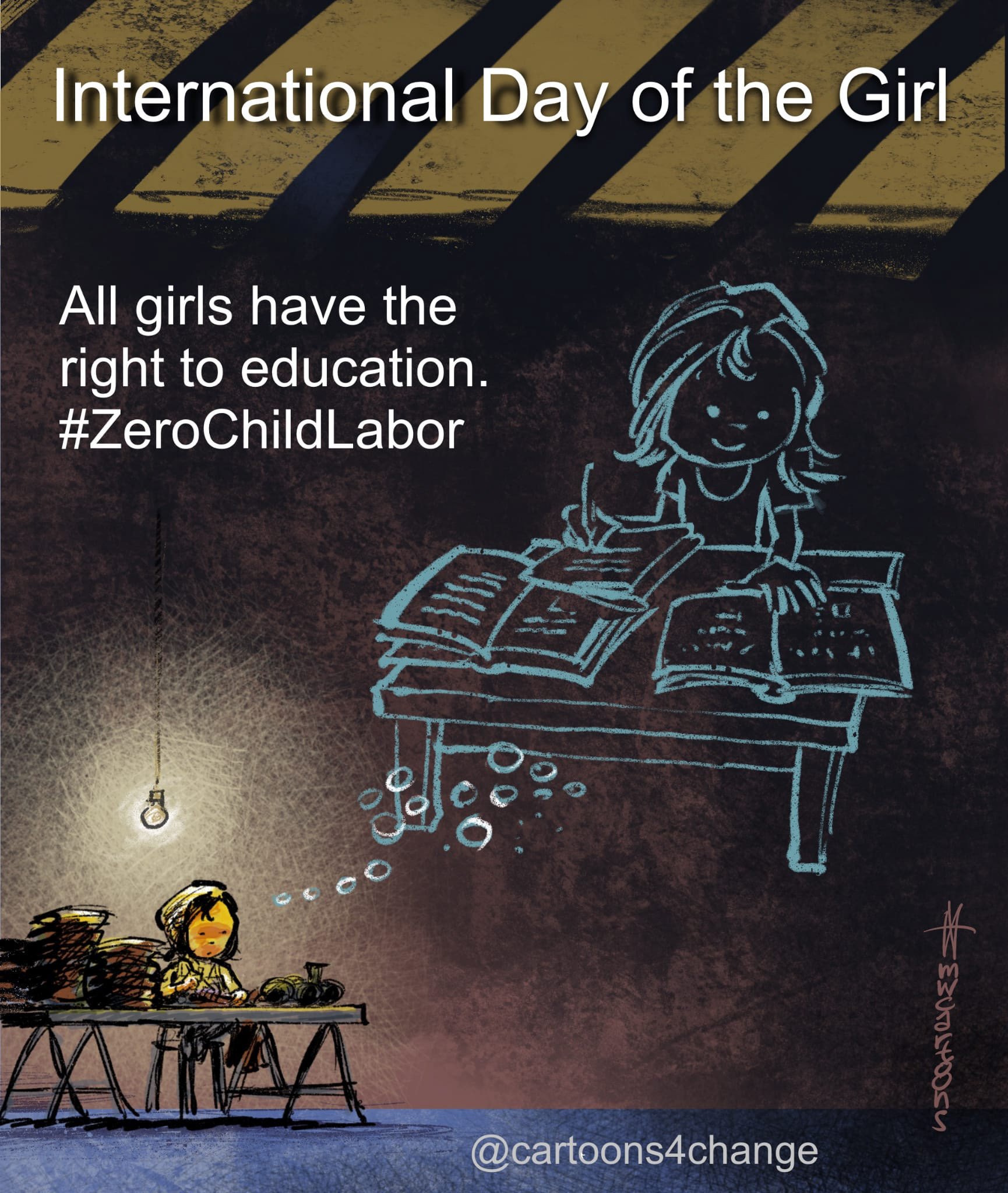“Harnessing our Collective Responsibility for Change”
Written by Rebecca Mazur
At Homeless Entrepreneur’s second visit to the annual World Economic Forum in 2019, Andrew Funk, founder, was in search of improving public and private relations. After sleeping out in the sub-zero temperatures (-20ºC) each night, Andrew and the team attended meetings and connected with other guests in attendance in the street and throughout the Promenade. Andrew met another activist for the first time, Fernando Morales-de la Cruz, who works towards ending child labor and forced slavery, in front of the Deutsche Bank free winter hat stand. Fernando has what Andrew describes as the “Homeless Entrepreneur mindset”, which is someone who helps empower people out of poverty using their own resources.
Meet Fernando Morales-de la Cruz, founder of Cartoons for Change, an organization that defends the right of all girls to education and demands that governments and corporation’s commitment to #ZeroChildLabor.
With the participation of cartoonists and illustrators from all continents, they work collectively to defend children's rights, eliminate child labor and abolish slave labor in the supply chains of corporations and developed nations. The artists of Cartoons for Change are a random collective of individuals who work towards their moral responsibilities to end child labor and modern-day slavery.
Across the world, individuals unite to act on their moral responsibilities alongside a larger collective. We see this activity the face of climate change, systematic racism, oppression, and as a response to bad policy decisions. Cartoons for Change harnesses the power of talented artists from every contintent through cartoons, animations and illustrations to bring awareness to the 160 million children in child labor worldwide.
“No person of goodwill should remain neutral when hundreds of millions of children are being exploited for child labor in rural communities and denied their right to an education.”
Change begins with one individual with a moral responsibility to improve the lives of others. Strong messages resonate with others and movements grow into a collective responsibility that spans across communities, bringing awareness to issues that we can work together to resolve.
Individuals, like the artists at Cartoons for Change, are a part of a large collective responsibility, however change is in the hands of policy makers who enacts laws and business leaders that shape the future of society.
“A company leaders are increasingly aware of the impact they have on society and need to build sustainable ecosystems for all stakeholders, not only their customers and shareholders, but also their suppliers, employees, talent, the communities that surround them and the planet they inhabit.”
A sustainable ecosystem is essential to the success of Homeless Entrepreneur, where we understand and encourage the participation of government and corporations in social rights relating to homelessness.
Housing First is an example of innovative public policy reassembling the possibilities of private housing for everyone with an ongoing partnership between the government, private firms and individuals. In 2014, Spain implemented a Housing First policy, called the Habitat program. The program relied on participation from a mix of public and private resources from local government, like the Ministry of Health, Social Services and Equality, bank foundation La Caixa, which supported cost-efficiency evaluations, and other private companies and individuals.
Homeless Entrepreneur’s Housing Launchpad utilizes partnerships with hostels in cities to turn them into short term housing for homeless people. Hostel are typically liabilities in the housing sector, but we believe that a partnership can change that into an opportunity for homeless people to live in temporary housing. While the hostel has been successful for the Homeless Entrepreneurs as they prepare to reenter the workforce, we continue to push for structural change to occur at the public level.
“Public-private collaboration is key to face the various current problems. It is true that there is such collaboration [city council and private firms], but now it should be increased much more.”
The government and private sector have a responsibility to protect social rights and invest in human capital. Policy Officer at Housing Europe, Edit Lakatos, believes that the responsibility to protect social rights lies within the government and should enable the private sector to contribute to fulfilling right to housing, which is currently the case as much of public housing within the EU is built and maintained by private companies.
“Where the private sector can and should contribute is the financing of housing and social support and the increasing use of Corporate Social Responsibility (CSR) principles, Environment, Social, Governance (ESG) criteria and some initiatives like impact investment can pave the way.”
Private companies can contribute to sustainable ecosystems for job creation, skill building and dignified, affordable housing. CSR is a business model that encourages ethical business with moral values and respect for people and the environment. Private firms can evaluate their contributions and collective consciousness within the social, governance and environmental spheres, such as employment, diversity, organizational structure, and greenhouse gases.
Through movements such as Cartoons for Change, Housing First and Homeless Entrepreneur’s Housing Launchpad we can come to understand the importance of collective and corporate responsibility to empower people out of poverty. We can change one person’s life but with collaboration and strong partnerships between the personal, private and public, we can work towards expanding social rights for the most vulnerable members of society, the homeless and children. Cartoons for Change message to achieve #ZeroChildLabor calls on business leaders and policy makers to commit to stronger Corporate Social Responsibility and Environment, Social, Governance practices. The Homeless Entrepreneur mindset understands the importance of collaboration and being resourceful. We challenge the people around us to be better leaders and advocate for better policy for the issues we care about.
About the Author
Hello readers and supporters of Homeless Entrepreneur!
I am Rebecca Mazur, a social policy intern with Homeless Entrepreneur and I will be focusing on important topics relating to poverty, homelessness, and social policy in Spain.
I am currently based in Barcelona, Spain for a Study Abroad program, however I attend The College of New Jersey as a political science major. I have experience working with diverse and differently abled groups and assisting in housing and food programs for people who are struggling. My passion is helping others through social policy and programs that empower people to live meaningful, independent, and active lives. I am excited to be working with Homeless Entrepreneur and discussing important topics in upcoming articles.
Please donate, join the conversation and leave comments and feedback below!



